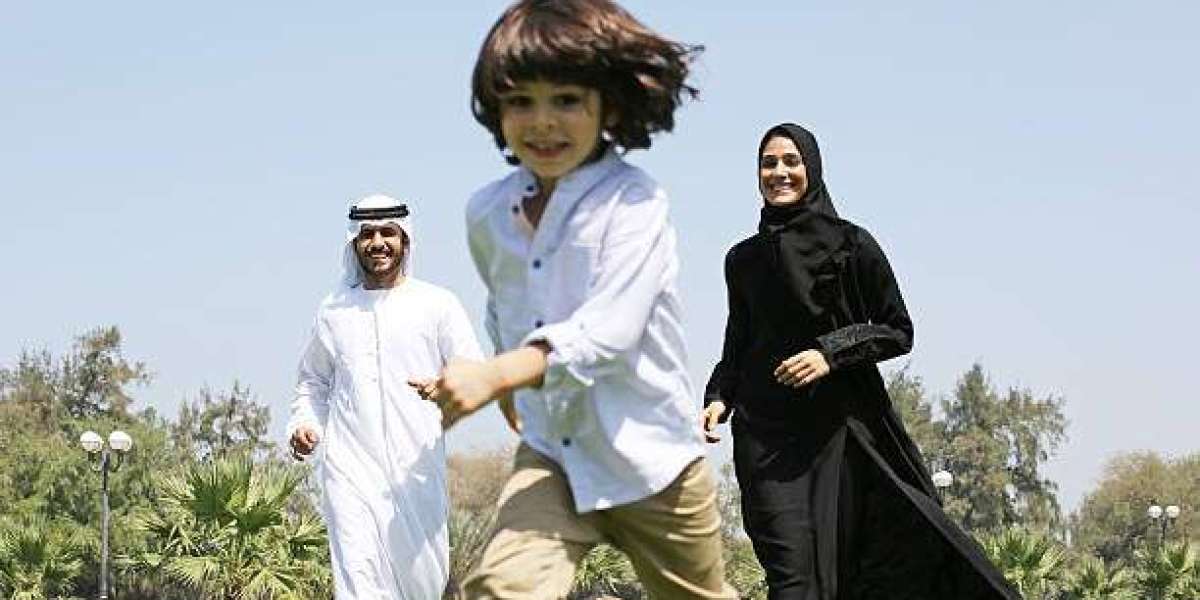Kids love running around, pretending, or playing games. In Saudi Arabia, where family and community are everything, play does more than entertain—it helps kids feel good inside. It lets them deal with big feelings and grow strong. This article explains why play matters for kids’ emotional health in Saudi Arabia and gives easy ways to make it happen.
Why Play Helps Kids Feel Better
When kids play, they learn how to handle their emotions. They might laugh, cry, or get mad during a game, and that’s okay—it’s practice for life. In Saudi Arabia, kids deal with schoolwork and city life, which can be tough. Playing gives them a break and helps them stay calm.
Play also makes kids less worried and more confident. It’s like a fun way to keep their minds healthy. In a country where family ties are strong, playing together builds trust and love.
What Play Does for Kids
- Shows Emotions: Kids act out feelings like joy or fear in games.
- Builds Friendships: Playing with others teaches kids to share and talk.
- Eases Worry: Jumping or running makes kids feel lighter.
- Grows Confidence: Finishing a game or puzzle makes kids proud.
Play in Saudi Arabia’s World
Saudi Arabia cares about family and working together. Old games like “Al-Saqr wal-Dajaj” (Hawk and Chickens) teach kids to help each other. New games, like soccer or board games, do that too. These games match Saudi values of kindness and respect.
But big cities like Riyadh and Jeddah don’t always have enough parks. Kids often play inside or join sports clubs. Schools are starting to use play to help kids feel better, which fits with Saudi Arabia’s Vision 2030 plan to support young people.
Problems With Play
- Few Play Areas: Cities often lack safe spots for kids to run around.
- Too Much Phone Time: Kids stare at screens instead of playing.
- School Focus: Some families think studying is more important than play.
- Old Thinking: Not everyone sees play as key for kids.
How Play Helps Kids’ Hearts and Minds
Play does a lot to make kids emotionally strong. Here’s how:
1. Lets Kids Share Feelings
When kids pretend to be heroes or play family, they show what’s in their hearts. A kid acting out a story might show they’re scared or happy. This helps them figure out their feelings.
2. Makes Friends Easier
Games like “Dama” (a board game) teach kids to wait their turn and be kind. In Saudi Arabia, where community counts, this helps kids feel connected and not alone.
3. Takes Away Stress
Running around or playing tag makes kids smile. It’s like a quick fix for a bad day. For kids with bigger worries, obsessive compulsive disorder treatment might help, but play is great for everyday stress.
4. Builds Guts and Pride
When a kid wins a race or solves a puzzle, they feel like a champ. Even losing teaches them to keep trying. This makes them tougher for school or life’s challenges.
Questions Parents Often Ask
Here’s what people wonder about play:
Why Is Play Good for Kids’ Minds?
Play helps kids deal with feelings and chill out. It’s a safe way to learn about life.
What Games Are Best?
Pretend games, sports, or puzzles are awesome. They get kids moving and thinking.
How Can I Get My Kid to Play?
Make time for fun, give them simple toys, or play along. Keep it safe and exciting.
Does Screen Time Hurt?
Too much time on phones takes away from real play, which kids need to feel happy.
Simple Ways to Get Kids Playing
Parents and teachers can help kids play more to stay strong inside. Try these:
1. Make Room for Play
- Set aside 15-20 minutes a day for games.
- Turn off screens to focus on real fun.
- Play family games to laugh together.
2. Find Places to Play
- Use your home or a small yard for games if parks are far.
- Sign kids up for sports or community clubs.
- Ask for more playgrounds in your city.
3. Pick Fun Games
- Try old Saudi games like “Tabb Al-Hajla” (hopscotch).
- Use puzzles or board games to spark teamwork.
- Mix old and new games to keep kids hooked.
4. Bring Play to School
- Tell teachers to use games like storytelling for learning.
- Push for play breaks during school hours.
- Help schools teach kids about feelings through play.
5. Get Help if Kids Need It
Play is great, but some kids need more. For example, marriage counseling Riyadh can help families create a happy home for play. Talking to a counselor can also help kids with tough emotions.
What Saudi Arabia Is Doing for Kids
Saudi Arabia’s Vision 2030 wants kids to be healthy and happy. There are programs like the National Center for Mental Health to help families. Schools are teaching kids how to manage feelings. Cities like Dammam are adding play spaces. But some people still feel shy about getting mental health help, so more work is needed.
Things to Check Out
- Classic Saudi games for kids
- Why play helps kids learn better
- Where to find mental health help for kids in Saudi Arabia
- Ways to cut down on screen time
How Communities Can Help Out
- Build more parks in places like Jeddah or Riyadh.
- Host family game days for fun and bonding.
- Teach teachers to use play to help kids feel strong.
Final Thoughts: Play for Stronger Kids
Play is a big deal for kids in Saudi Arabia. It helps them share feelings, make friends, and stay tough. Parents, schools, and communities can help by making time for play, finding safe spots, and picking fun games. Even with challenges like crowded cities or too many screens, play can make kids happier. Try a game with a kid today—it’ll help them grow strong and smile more.







